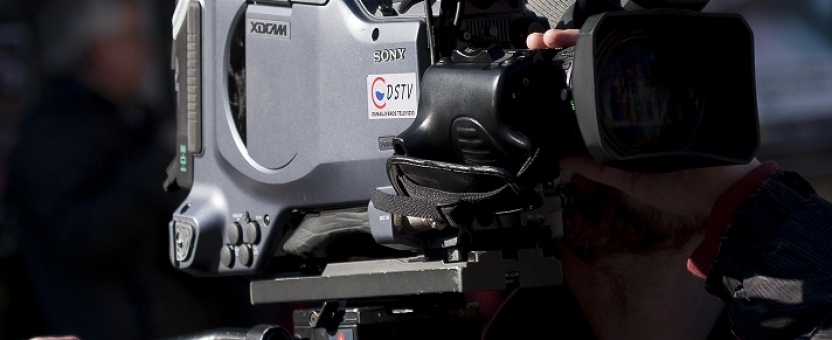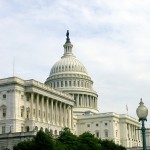When too much power is delegated to the news media under the interpretation of the First Amendment of the Constitution it can become arrogant, defiant, and destructive. The right of each individual to the protection of his or her own reputation from unjustified invasion and malicious attack should be fundamental, but is less protected than you might believe.
Take a moment to read the basic words of the U.S. Constitution regarding the press. The First Amendment reads, “Congress shall make no law abridging the freedom of the press.” It says no more, no less. It is well to note that it does not say there shall be a free press. But rather, Congress may not make a law abridging the freedom of press. All other interpretations have evolved through court decisions, which have built a pyramid, block by block, layer by layer, extending the power of alleged total freedom of the press as an entity, entirely separate from the people, and separate from the government. In fact, there is limited redress from libel or abuse since the courts narrowed that avenue of due process in the matter of Sullivan vs. The New York Times in 1964. In short, the news media now has a super governmental-like control over the people and subject to no restrictions by the people of this nation.
The establishment of a free press was based upon the belief that controversy is vital to public information and creates a system of justice in which the exchange of views is the heart and soul of freedom. However, the press, like other valuable institutions, is capable of abuse and injustice. History books tell us that when the Constitution was first written, there was no First Amendment. Among those who opposed any guaranteed effort for freedom of the press was Alexander Hamilton, who said that it would be impossible to write a good definition of freedom of the press, since any definition would be capable of utmost invasion of the people’s right to privacy, and rights of legislators to govern without fear of offending the forces and publishers of the press. The Framers of the Constitution recognized this, and many said the press should be subject to the check provided by libel laws. “It is a melancholy truth,” Thomas Jefferson wrote, “that a suppression of the press could not more completely deprive the nation of its benefits than is done by its abandoned prostitution of falsehood.”
Benjamin Franklin agreed. With characteristic felicity, he wrote: “If by the liberty of the press were understood merely the liberty of discussing the propriety of public measures and political opinions, let us have as much of it as you please; but if it means the liberty of affronting, culminating and defaming one another I, for my part, am not willing to part with my share of it … and shall cheerfully consent to exchange my liberty of abusing others for the privilege of not being abused myself.”
The influence of the rapid explosion of the media, both written and especially electronic, in shaping the American mind cannot be underscored too strongly. The great majority of the people in this country have been educated by television, radio, and online media in what they know and believe. While the majority of the press and those disseminating news to the public are responsible and observe the rule of fairness, far too many less responsible or amateur reporters and media personnel are careless with the truth and are devious in their presentations. Too little is heard of what reporters are doing to people – the characters they have unjustly injured, the privacy they have invaded, vital information they have suppressed, the misfortunes they have aired, the accusations they have made without legal evidence, the news they have distorted, and the careers they have destroyed, not to mention those who have been held up to public ridicule and contempt simply because they have attained importance in community life.
Today, all across the country, newspaper columns, editorials and blogs have been published asserting violation of the freedom of the press by the courts. Rarely are editorials written on behalf of the victims of the press or electronic media, no public opinion mobilized to right the wrong and there are no funds to engage special legal talent to defend them. Their only redress is to the courts, where, unfortunately too often, a presiding timid judiciary accedes to constant trial postponements so that the issue becomes a test of financial capabilities and an expense beyond the resources of the aggrieved party. Our ability to intercede, assist and establish an area of justice in this area is especially demanding.
It is estimated that less than five hundred men and women, out of a population of almost 320 million, control the overwhelming majority of the means of communication in the United States. It is one of the largest employers of labor in this nation in a market place that yields more than fifty billion in advertising revenue. The realization that a handful of men and women control so much of the printed and electronic press is a chilling thought, not because they are evil, but because they have concentrated too much power over the people and the government that they have become invulnerable to criticism or confrontation because of their ability to reward, punish, glorify and crucify. If the press has become, as many believe, the mere expression of the strongest, then the law has no meaning and government has ceased to have authority to dispense equal justice to all. The principle that safety and security of the people must be the highest law is in serious danger of disappearing. Perhaps we ought to take seriously the rugged philosophy endorsed by W. P. Hamilton, the fourth editor of the Wall Street Journal who led WSJ for 20 years, that “a newspaper is a private enterprise, published for profit, owing nothing to the public.”


